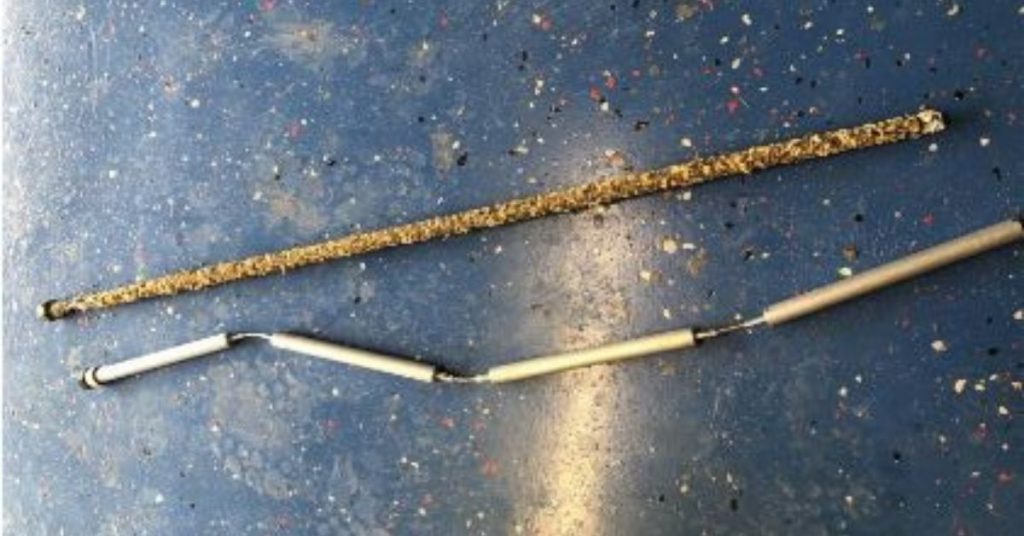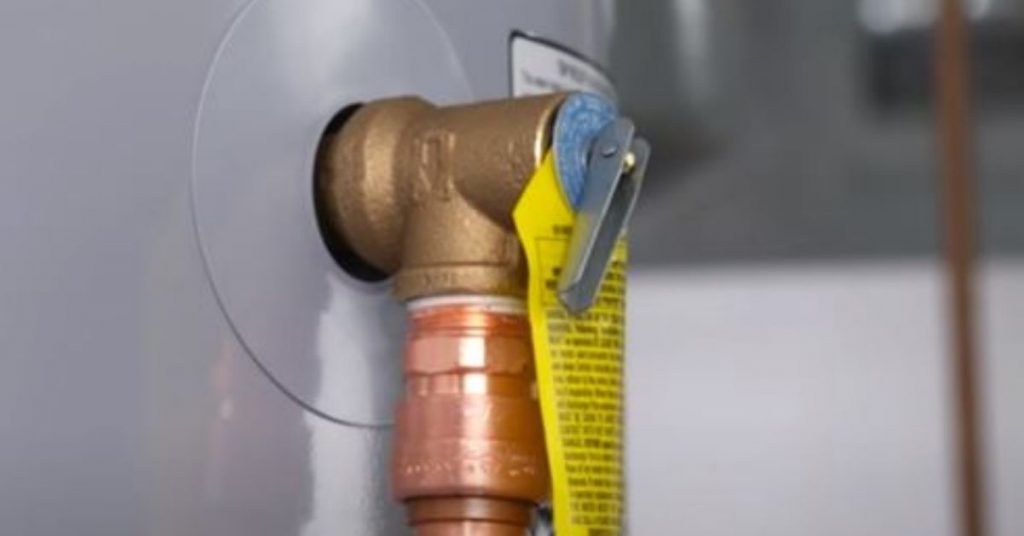
A water heater emitting a rotten egg-like odor can be unpleasant and may indicate an issue with your hot water supply. Here’s a brief summary of the causes and solutions for a water heater that smells like rotten eggs:
Causes of Rotten Egg Smell in Water Heater
- Bacteria in the Tank: The most common cause is the presence of sulfate-reducing bacteria in the water heater tank. These bacteria produce hydrogen sulfide gas, which gives off the characteristic rotten egg odor.
- Anode Rod Reaction: If the water’s chemistry is imbalanced or the anode rod in the water heater tank is reacting with the water’s sulfur compounds, it can release hydrogen sulfide gas.
Solutions to Address the Odor
- Flush and Clean the Tank: Periodically flushing and cleaning the water heater tank can help eliminate sulfur bacteria and sediment buildup. Turn off the power and water supply to the heater, drain the tank, and clean it thoroughly.
- Replace the Anode Rod: If the anode rod is contributing to the odor due to a reaction with sulfur compounds, consider replacing it with an aluminum or magnesium anode rod, which is less likely to produce hydrogen sulfide gas.
- Adjust Water Temperature: Raising the water heater’s temperature to 140°F (60°C) or higher can help reduce the growth of sulfur bacteria. However, be cautious about scalding, especially if you have young children or elderly residents.
- Chlorination: Shock chlorination involves introducing chlorine into the water heater tank to kill bacteria. This should be done by a professional plumber to ensure safety and effectiveness.
- Consult a Professional: If the odor persists despite these measures or if you’re unsure about handling the issue, consult a professional plumber for an assessment and appropriate treatment.
Causes of Sulfur/Rotten Eggs Smell in a Water Heater

Let us now look at the causes of sulfur/rotten eggs smell in the water heater in more details.
Before that, you will first need to confirm whether the problem is only affecting the water heater or both the cold and hot water.
To do that, turn on a cold water faucet for a few seconds and see if you can smell any unpleasant odor. If you can’t, turn on the hot water faucet and if the rotten eggs smell hits your nose the problem is with the water heater.
1. High Sulfur-Reducing Bacteria
The hot water inside a water heater creates a conducive environment for bacteria to thrive. This is especially if the warm water is left unused for a long time.
This problem affects people using water from a well more than those using water from the city. Your city will use chlorine among other chemicals to kill the bacteria but well water will have plenty of these bacteria which will multiply once inside the water heater.
What you might not know is that your water will naturally contain sulfates ions which are both harmless and undetectable.
The problem is that the bacteria inside the water heater feeds on these sulfates and in the process reduces them to hydrogen sulfide. As I have already mentioned, hydrogen sulfide is the gas responsible for the rotten eggs smell in your hot water.
2. Corroded Water Heater Anode Rode

Water heaters are designed with a sacrificial strip of metal called an anode rode which runs from the top of the heater to the bottom. The function of the anode rod is to extend the life of the water heater.
Instead of elements present in the water reacting with the interior wall of the water heater, they react with the anode rod and therefore preserve and extend the life of the water heater.
Most water heaters have aluminum or magnesium anode rods. When these anode rods corrode, the react with the sulfates present in the water to form hydrogen sulfide and hence the rotten eggs smell in the water heater.
How Do I Get the Rotten Egg Smell Out of My Water Heater?
To get rid of the rotten eggs smell from your water heater, you may decide to try and resolve the problem yourself or hire a plumber. A plumber would be the best option but as you already know it is quite expensive so we will try and see what you can do on your own.
1. Flush Your Water Heater
Flushing a water heater simply refers to the process of draining all the water and sediment settling at the bottom of the tank. The idea is to flush out the bacteria as well and hopefully they will stop feeding on the sulfates and producing the hydrogen sulfide.
Here is how to flush a water heater:
- Connect a garden hose to the water heater’s drain valve.
- Direct the other end of the garden hose to a floor drain or out into the driveway.
- Turn off the power or gas supply to the water heater.
- Shut off the cold water supply to the water heater.
- Open the drain valve
- Turn on the nearest hot water faucet. This helps to introduce air into the tank allowing it to drain faster.
- When all of the water has drained out, turn on the cold water supply. The water will hit the bottom of the tank hard and stir up any remaining sediment and flush it out as well.
- When only clean water is flowing out of the hose, shut off the cold water supply and the drain valve.
- Disconnect the garden hose and turn on the cold water supply again.
- As the tank fills with water, make sure that the closest hot water faucet remains open. That prevents air from building up. At first, water will be sputtering out of the faucet but you should only turn it off when the water stream flowing out of it is smooth.
- When the tank is full turn on power/gas to the water heater.
2. Disinfect the Water Heater
Disinfecting the water heater is good way to kill the bacteria and get rid of the rotten eggs smell. There are 2 methods you can use to disinfect a water heater.
The first method is a very simple method and involves the use of heat to kill the bacteria. Most people have their water heater thermostats set at 120 degrees and these bacteria will not be affected by that temperature.
Adjusting your water heater temperature to 160 degrees will however kill the bacteria. Adjust your water heater to this temperature and leave it for a few hours or even overnight and you will surely kill the bacteria.
If you don’t know how to adjust your water heater temperature check out this post.
The other method is through the use of bleach. Bleach contains chlorine which is what local authorities use to kill bacteria in the water supply.
- Start by turning off the water heater’s cold water supply.
- Next turn on a hot water faucet and draw about 5 gallons of water.
- Lift of your water heater’s temperature and pressure (T&P) relief valve to relive some pressure then remove it using a wrench.

- Make sure that the water level inside the tank is just below this valve.
- Use a funnel to pour 1 gallon of bleach inside the tank via the T&P valve opening.
- Install the valve back. Don’t forget to use Teflon tape.
- Turn on the cold water supply.
- Wait for a few minutes.
- Turn on all the hot water faucets in your house and only shut them once you can detect a chlorine smell from each.
3. Replace the Water Heater
Flushing and disinfecting water heaters will work on fairly new water heaters. If your water heater is too old, the best solution for you would be to replace it with a new one.
This is especially the case for people who have never flushed their water heaters meaning there is a lot of sediment at the bottom. If your water heater apart from being smelly makes noises, has no enough hot water or the hot water is not hot, you will need a new one.
For more information about when to replace your water heater check out this post.
4. Disinfect Your Well
If you use water from a well, the well water is the source of the sulfate-reducing bacteria. A solution for this problem is to disinfect the well through what is known as shock chlorination treatment.
This involves the introduction of a strong chlorine solution in the entire water distribution network comprising of well, pump, pressure tank, pipes etc.
This is however not something you can do on your own. You will need a professional who is well conversant with wells and water treatment.
5. Install a Zinc Anode Rod
If you suspect that your corroded aluminum or magnesium water heater anode rod is the cause of the rotten eggs smell in the water, you can replace it with zinc rod.
A zinc anode rod does not react with sulfates the way aluminum and magnesium rods do, which means there will be no production of hydrogen sulfide gas. It also helps your water heater last even longer.
Prevention
The best way to prevent the sulfur/rotten eggs smell in your water heater is by making sure you do not have stagnant water in your water heater for a long time.
By stagnant water I mean water that is not being utilized. The hot stagnant water creates an environment for the bacteria to build up.
Whenever you are going for a vacation or just any other trip be sure to turn off power or gas supply to your water heater. Unlike hot water, sulfate-reducing bacteria will not multiply in cold water.
